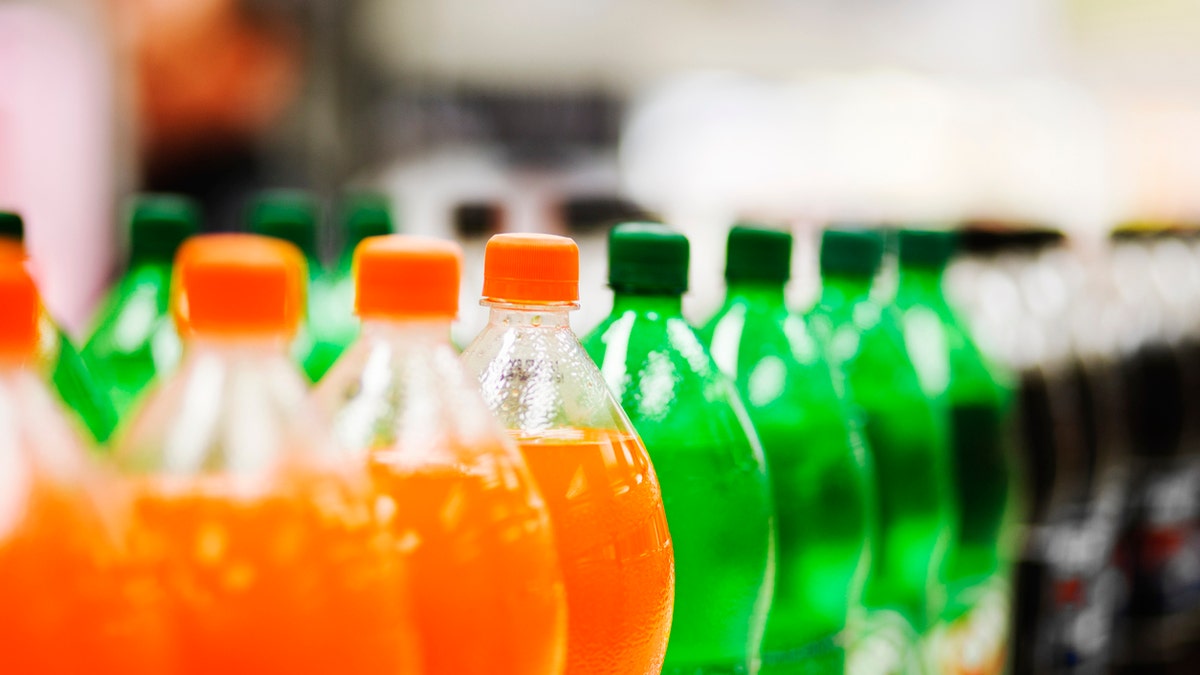
A long line of unbranded soda bottles in various flavours and colors, the focus on the center of the line. (Don Bayley)
The National Institutes of Health is spending over $150,000 to study adding warning labels to soda.
The University of California, Davis, is conducting the study, which will test warning labels akin to those found on cigarettes at the campus cafeteria. The study aims to determine whether the warning labels can "‘nudge' consumers toward healthier dietary choices."
"The prevalence of adolescent and adult obesity is higher than it has ever been in the U.S, driving population risk of diabetes and cardiovascular disease," according to the grant for the project. "Robust evidence indicates that consuming sugar-sweetened beverages (SSBs) increases the risk of developing obesity. Although the Centers for Disease Control and Prevention and the National Academy of Medicine have called for broad action to reduce SSB consumption, little is known about how to effectively do so in the age group that consumes the greatest amount of SSBs—older adolescents and young adults."
"One promising and potentially scalable approach is the use of SSB health warning labels," the grant states.
The researchers pointed to cigarette warning labels as a model. Sodas with "legally viable" warning labels will be tested in student cafeterias. The only warning label for soda law attempted in the United States was struck down by the liberal Ninth Circuit Court of Appeals for violating the First Amendment rights of beverage advertisers.
The leading researcher, Jennifer Falbe, an assistant professor at UC Davis who has also published studies favorable to soda taxes, said her goal is to "nudge" Americans.












































